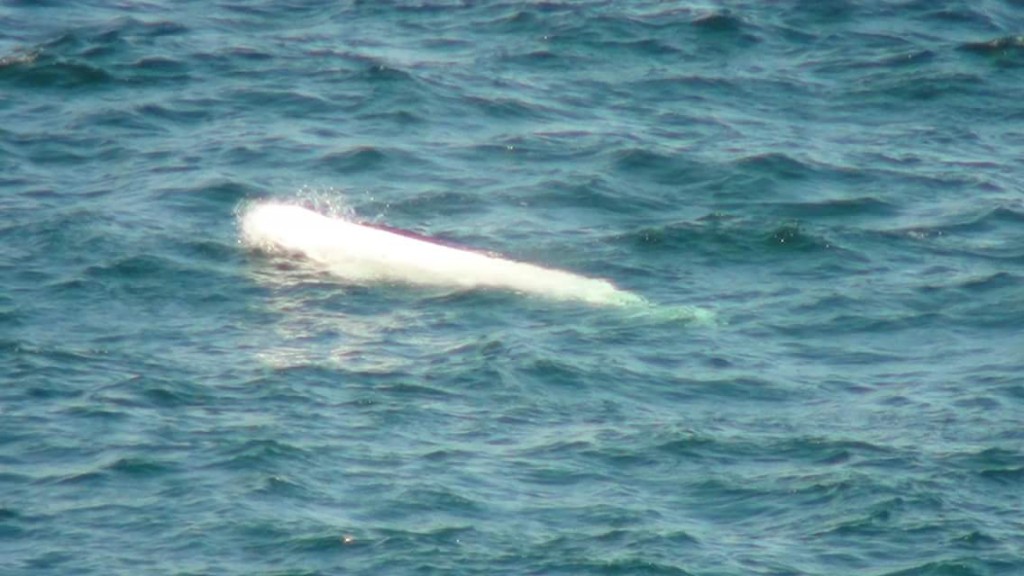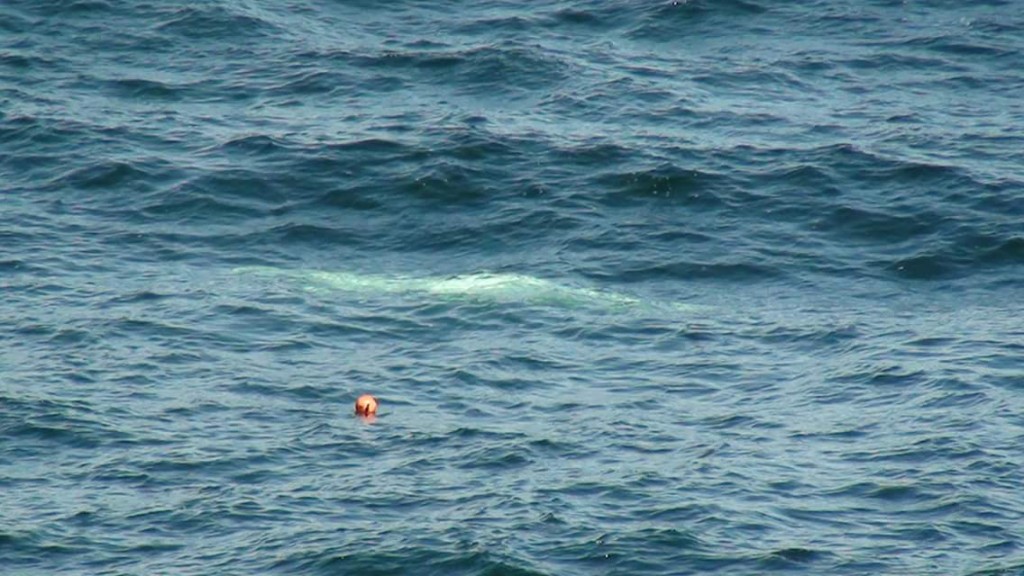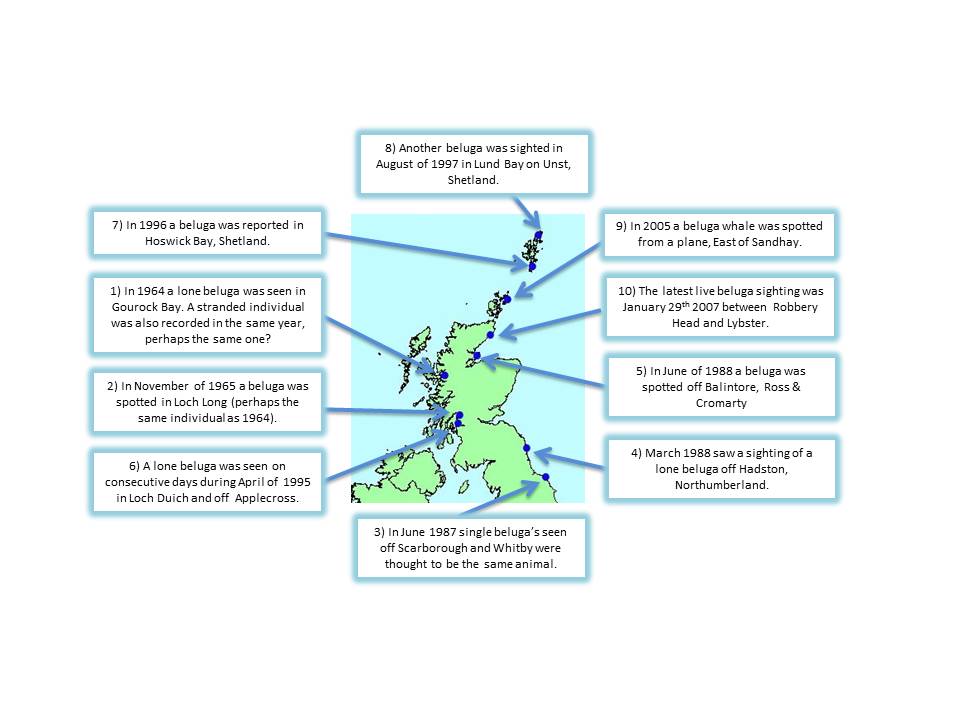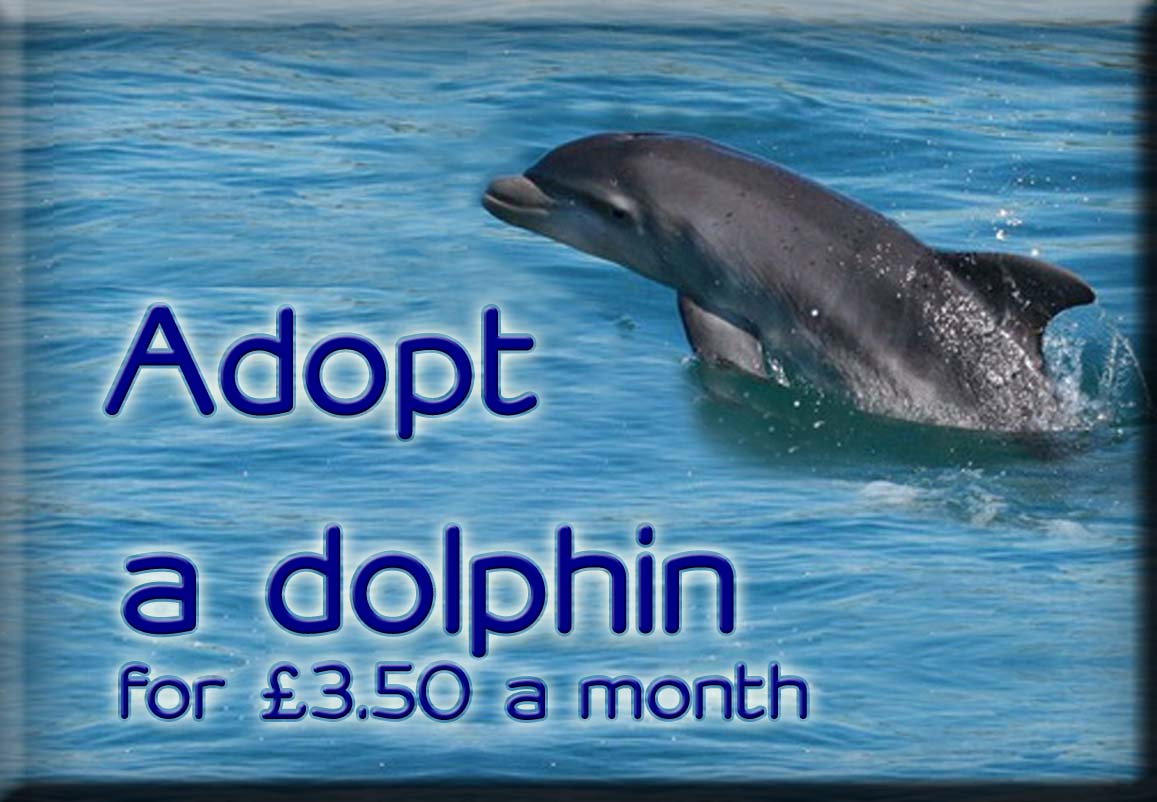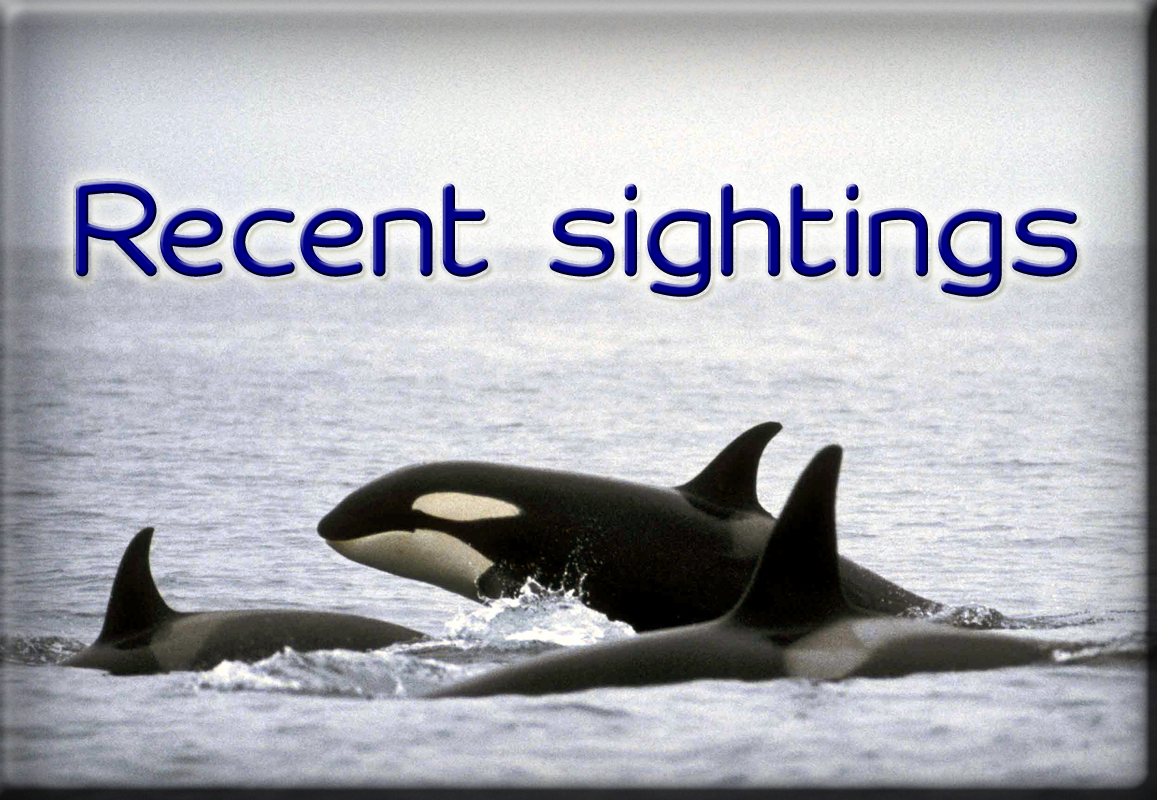This week has seen hundreds of people travelling to the coast or offshore in boats to take part in Sea Watch’s annual National Whale & Dolphin Watch. Coverage has stretched from the Northern Isles of Shetland & Orkney south to the Isles of Scilly off Cornwall and even the Channel Islands of Jersey, Guernsey and Sark. For sightings from, and details of, the event so far please visit: national-whale-dolphin-watch-taking-place-now. Many during the week have had to battle unseasonal weather – high winds and relatively cold temperatures. This seems to be the story of the summer in many parts of the British Isles. So maybe it is fitting that on Thursday (30 July), when Gordon Watson visited the coast of Co. Antrim between Portbraddan and Dunseverick primarily to photograph jellyfish, he was surprised to see below the cliffs, the arching back of a beluga or white whale – a species normally found around two thousand miles away to the north in the Barents Sea from the island archipelago of Svalbard eastwards, where some thousands of animals live amongst the ice. Gordon took some excellent video of the animal, which helped confirm the identity of species.
Figure 1. Beluga whale surfacing near Dunseverick, Co. Antrim, 30 July
(photo: Gordon Watson)
Belugas are small whales about 5-6 metres length, and adults distinctively are pure white with a small bulbous head, and displaying when surfacing an arched smooth back without any dorsal fin.
To our knowledge, this record is the first ever from Northern Ireland, and in the last one hundred years in fact there have been only 17 records before this one in all of Britain and Ireland (ten in the last thirty years). There are just two records from the Republic of Ireland – one off Clare Island, Co. Mayo in 1948 and another at Cobh, Co. Cork in 1988. Thirteen of the seventeen records come from Scotland. Most sightings have been made between June and September.
So what brings this individual such a distance from the arctic into our waters? Dr Peter Evans, Director of the Sea Watch Foundation, who helped confirm the species identification, commented: “This is not the first arctic species to occur in Britain this year. Back in February, the first European sighting of a bowhead whale was captured on a smart phone in the Isles of Scilly. In that instance it was thought that the fragmentation of floating ice may have resulted in whales typically associated with pack ice, straying much further south. Whether the same has occurred in the case of this beluga is not clear but sea temperatures have been unusually low this summer.”
Figure 2. Beluga whale just below the surface near Dunseverick, Co. Antrim, 30 July
(photo: Gordon Watson)
Figure 3. Map showing Beluga whale sightings in the UK over the past fifty years
(source: Sea Watch Foundation)
Dr Evans noted that “Sea surface temperatures in the northeastern North Atlantic (between Ireland and Iceland) early this summer (May) have averaged more than one degree C lower than the average for the same period over the past twelve years.”
Figure 4. Average early summer sea surface temperatures
in the northeastern North Atlantic from 2003-15 (Source: MODIS NIR)
“Although the overall trend in average annual sea surface temperatures in UK coastal waters has been upwards,” Dr Evans added, “ since the 1980s there has been an increase in average sea surface temperature of 0.2-0.8oC per decade. However, the increase has been much greater in the southern North Sea than off NW Britain and Northern Ireland where there has actually been very little change, and some years have seen an actual fall in temperature in the latter region. This year seems to be such a case. This may in part explain why arctic species like beluga and bowhead have turned up in our coastal waters in 2015.”
If you are lucky enough to see a live beluga whale or any other cetacean species, then please let us know using our online sightings form: http://www.seawatchfoundation.org.uk/sightingsform/.
FOR FURTHER INFORMATION OR INTERVIEWS, PLEASE CONTACT: Dr Peter Evans, Director of Sea Watch Foundation at peter.evans@seawatchfoundation.org.uk or on one of the following telephone numbers: 01407 832892 (landline) or 0776 556 6102 (mobile).

